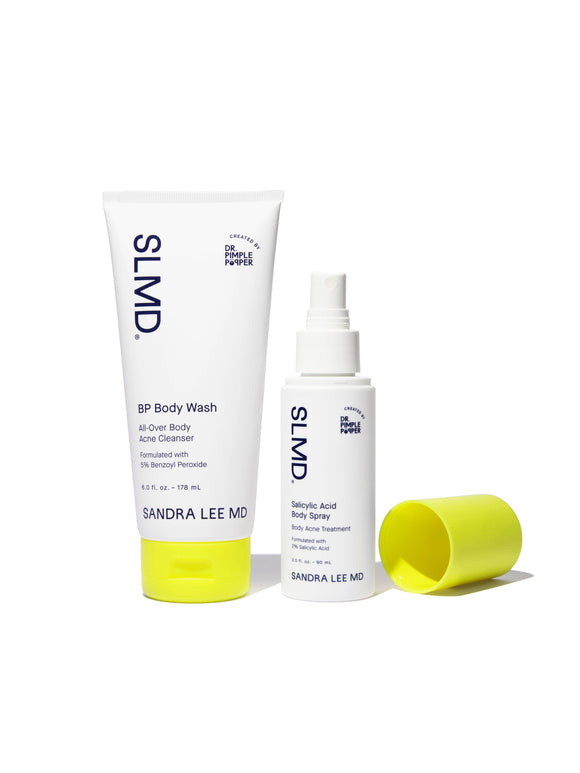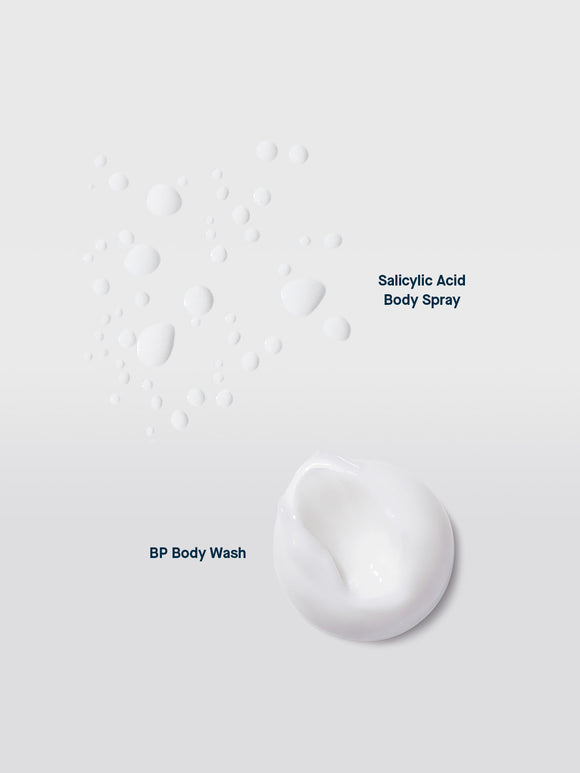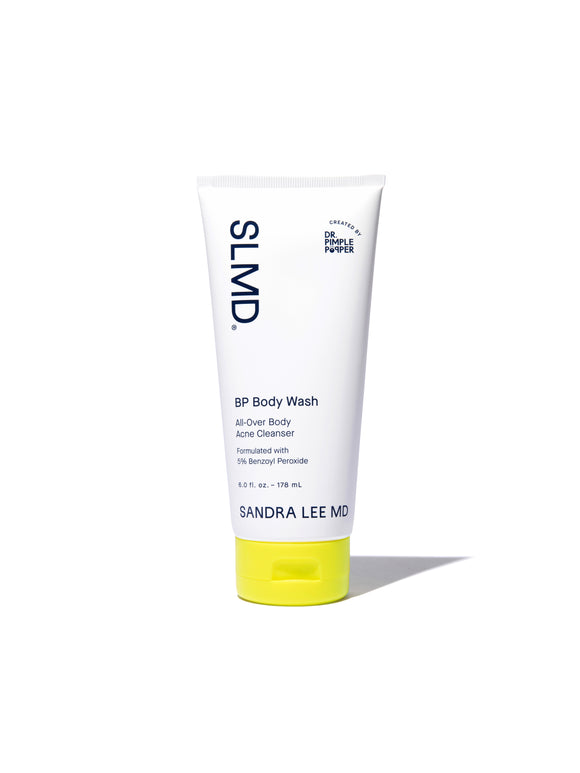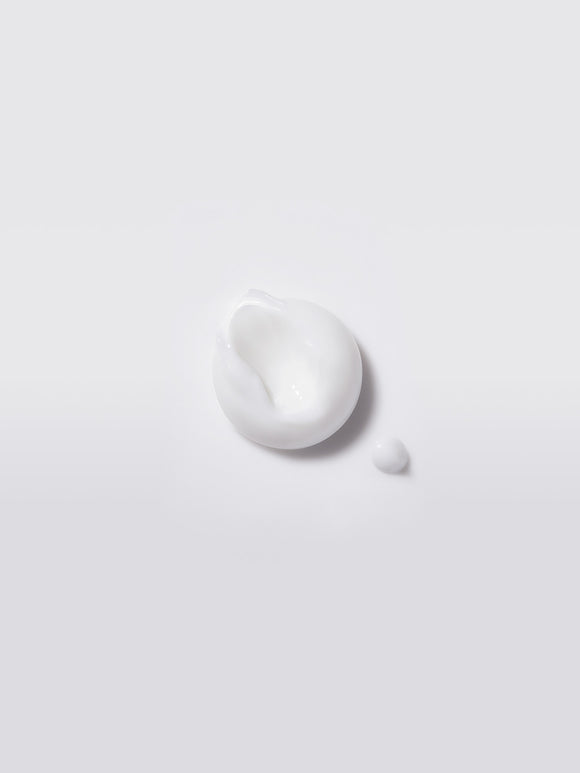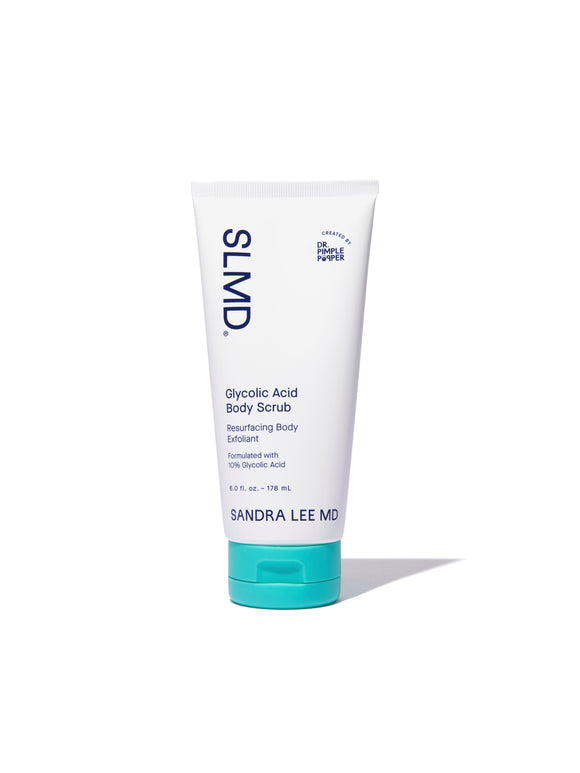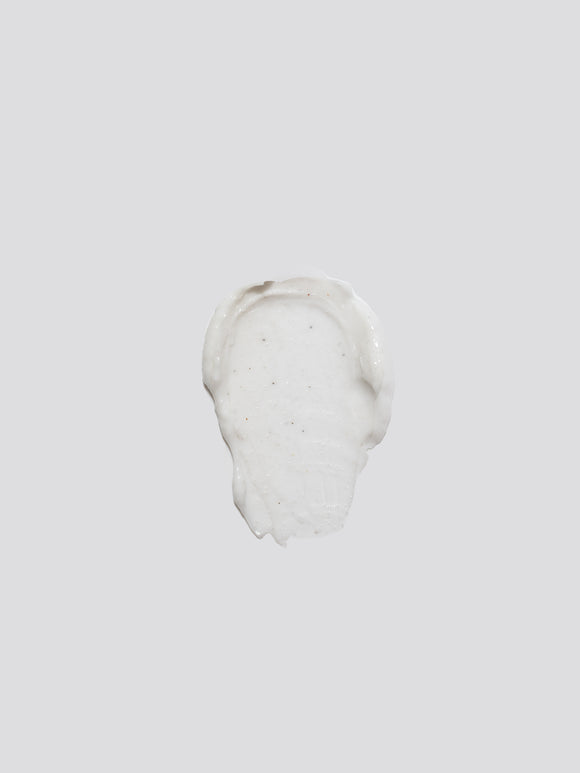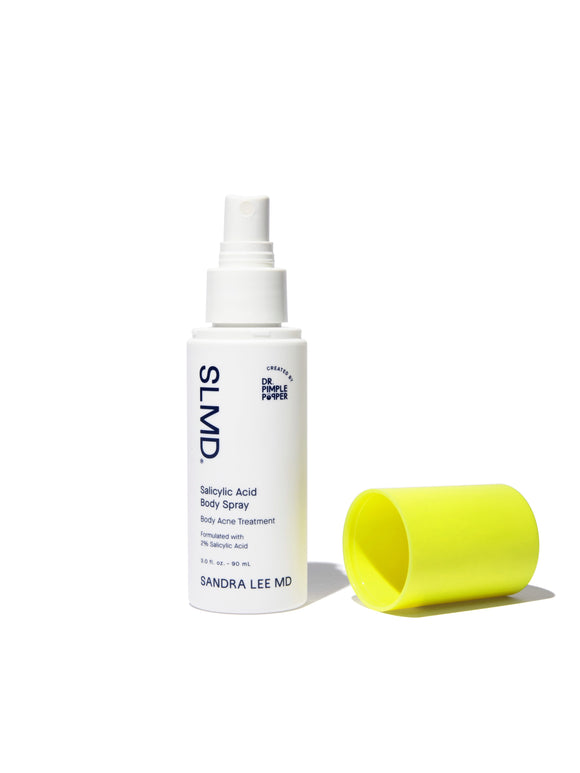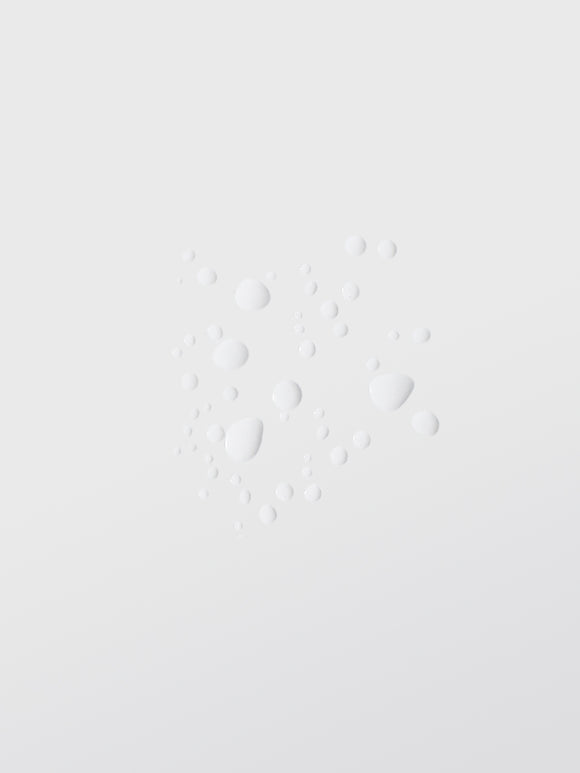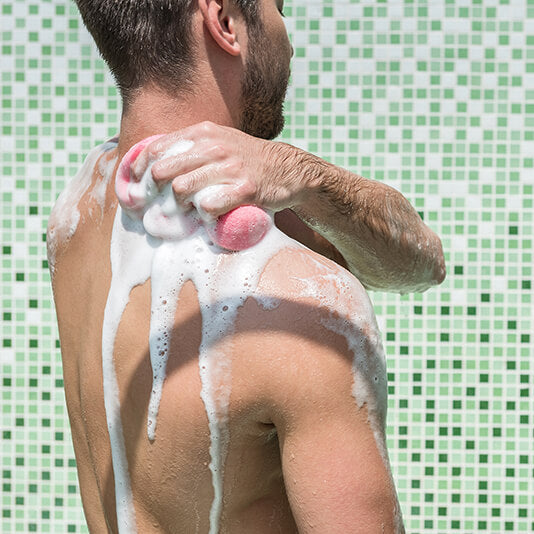
Is Exfoliating Bad for Body Acne?
When pimples start popping up on body parts — neck, chest, back and beyond — it's no surprise that many of us turn to exfoliating scrubs, body washes, sprays and spot treatments. But is exfoliating even a good idea if you've got body acne? We asked board certified dermatologist Dr. Sandra Lee (aka Dr. Pimple Popper) for answers.
Published:
2 minute read
When pimples start popping up on body parts — neck, chest, back and beyond — it's no surprise that many of us engage our entire acne-fighting arsenal. Exfoliating options abound: scrub, body wash, spray, spot treatment, serum, and so on.
But let’s back up: is exfoliating even a good idea if you've got body acne? We asked board certified dermatologist Dr. Sandra Lee (aka Dr. Pimple Popper) for answers.

What does exfoliating do for skin?
The first thing we need to understand is what exfoliating really means: it’s fairly common knowledge that it’s basically sloughing off a layer of dead skin cells. This can help alleviate acne by keeping pores from clogging with those dead cells.
What's often not completely understood is that there are two different types of exfoliants, and the distinction is important:
- Physical: granules that mechanically scrub the skin’s surface, like sugar, salt, coffee, or abrasive objects like loofah or pumice.
- Chemical: alpha or beta hydroxy acids like glycolic, lactic, or salicylic, that loosen the bonds holding dead skin cells in place.
What type of exfoliants are best for body acne?
When it comes to treating acne, we need the right tools for the job — which means we need to first understand what type of acne we're dealing with.
Non-inflammatory acne (blackheads and whiteheads) is best managed with either chemical exfoliants, or a combination of both physical and chemical ones:
- SLMD Skincare Glycolic Acid Body Scrub contains both self-dissolving granules as well as alpha hydroxy acid to slough away dead skin buildup.
- SLMD Skincare Salicylic Acid Body Spray contains beta hydroxy acid, known for its extraordinary exfoliating and pore-cleansing abilities.
Inflammatory acne (papules, pustules and cysts) on the other hand, respond better to chemical exfoliants only. This is because physical exfoliants like scrubs can sometimes cause micro tears, aggravating already-irritated skin.
- Instead of exfoliating with a shower scrub, try SLMD Skincare BP Body Wash, which is formulated with maximum strength benzoyl peroxide to kill acne-causing bacteria and calm inflamed skin.
- Post-shower (and before/after activities like exercise), spritz on exfoliating Salicylic Acid Body Spray to take care of clogged pores, which will in turn help keep more advanced acne at bay.
Can exfoliating make body acne worse?
When it comes to treating body acne with scrubs (and even chemical exfoliants), it is possible to have too much of a good thing.
Physical scrubs are user-dependent: no judgment here, but we know some of you can be a little...overzealous with physical exfoliants — especially when using harsh granules like coffee or ground nut shells to attack acne.
What’s more, rubbing active inflammatory acne creates a risk of additional irritation as well as the potential for spreading bacteria.
Even though chemical exfoliants are a safe and effective option for both non-inflammatory and inflammatory acne, don’t overdo it — or you’ll end up with more redness and irritation (and likely more breakouts).
Here are some typical signs of over exfoliation:
- Redness
- Stinging
- Peeling and flaking
- Breaking out
If you’ve been exfoliating regularly and start to experience some of these signs, ease up on your routine to see if it helps.

Dr. Lee’s last word
I always recommend chemical exfoliation for keeping pores clear on both the face and body. Salicylic acid is an extremely effective beta hydroxy acid that penetrates into pores without aggravating active inflammatory acne. For those with non-inflammatory acne, like blackheads and whiteheads, scrubs with both physical and chemical exfoliants are also typically very effective.
—Dr. Sandra Lee



